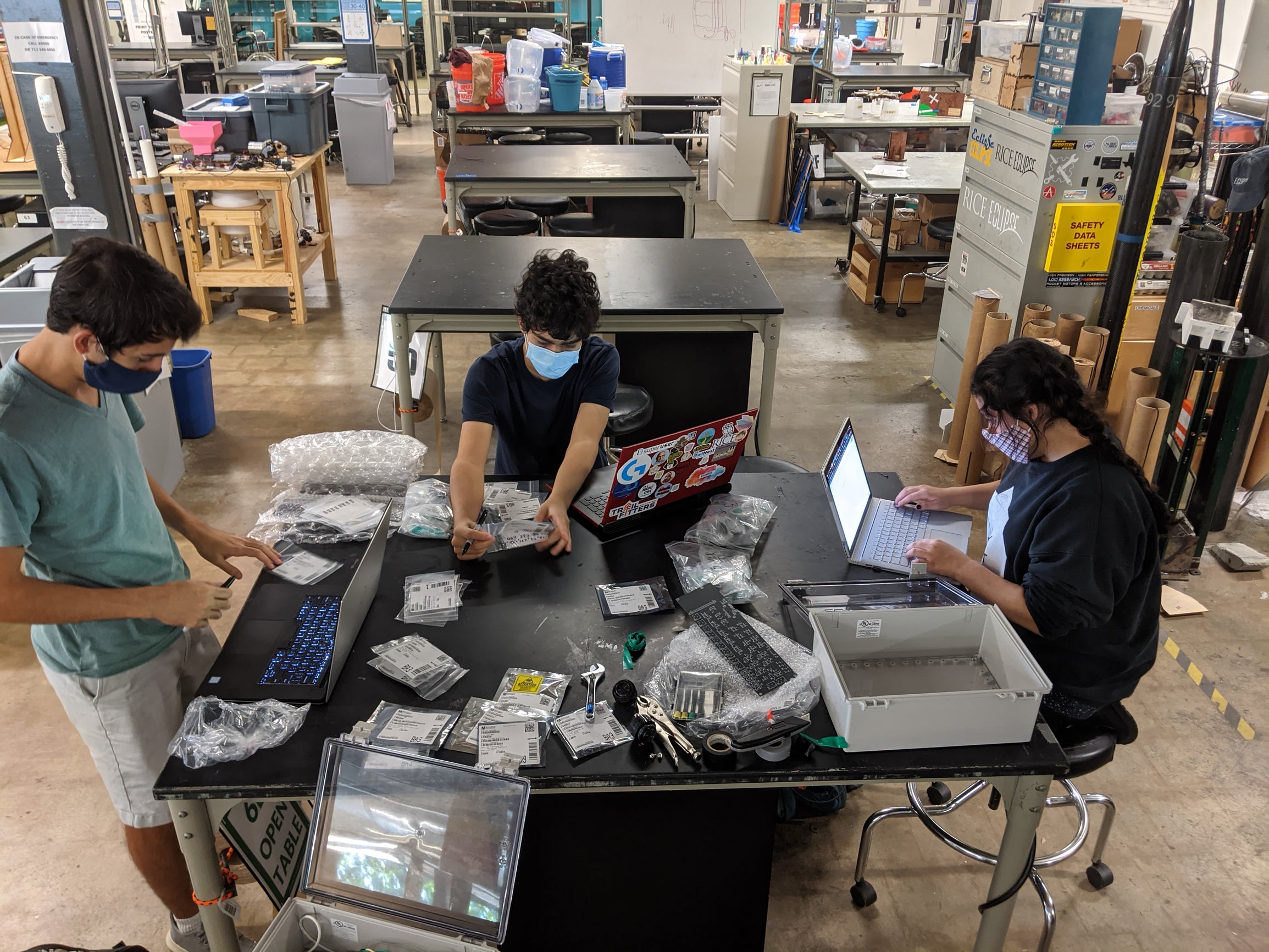Rice University’s undergraduate rocketry team, Rice Eclipse, has been awarded a $1,000 grant from the Department of Electrical and Computer Engineering at Rice.
The rocketry team, Eclipse, builds high-powered rockets and hybrid rocket engines for the annual Spaceport America Cup intercollegiate rocketry competition. Electrical and software engineering play a large role in Eclipse’s work, while the Avionics team within Eclipse helps the rockets take flight during competitions. The Avionics team designs the software and manufactures the hardware to power Eclipse’s rocket engines during tests and builds flight computers for Eclipse’s competition models.
Last year, the Avionics team initiated a complete redesign of the team’s legacy engine testing software, Rice Eclipse Software for Engine Testing (RESFET). Written in C++, it provides reliable data acquisition, storage, and transmission for Rice Eclipse engines during static tests. Additionally, RESFET provides a remote mission control dashboard for commands to be sent and data to be displayed in real-time, allowing team members to assess an engine’s performance during and after a test.

Following the success of RESFET, the Avionics team also redesigned and began populating Eclipse’s new engine controller hardware. This project, named ARCA, Latin for “box,” interfaces with all of the necessary hardware components, such as the ignitors, pressure transducers, load cells, thermocouples, and electronic valve controls, to successfully execute an engine test. A large portion of the Rice ECE grant will be used to further develop and produce ARCA. The team looks forward to fully deploying ARCA this spring
The grant will also help with rocket recovery. Real-Time Rocket (RTR) is a custom real-time data acquisition and transmission system that allows Eclipse members to track the position of rockets in real-time and monitor telemetries such as acceleration, velocity, altitude, and critical events like parachute deployment for recovery.
Working on an experimental rocket recovery system will provide operational guidance as a rocket descends on a parachute, ideally returning the rocket as close as possible to the launch site.
To learn more about Eclipse and the Avionics team, please visit our website at eclipse.rice.edu.

